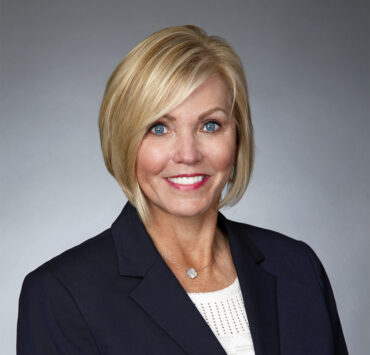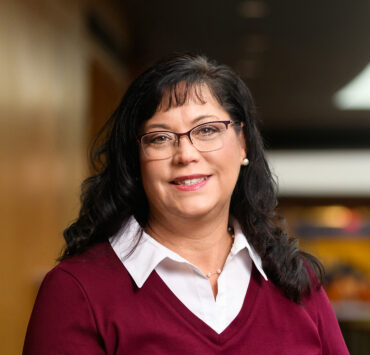What do you do when the system you need doesn’t exist? Developing your own solution is one option—and that’s exactly what Nastasja Robaina, managing director of product management at ChenMed, is doing with her team of product managers.
At the time, ChenMed, which operates more than a hundred primary care medical centers for seniors in fifteen US states, couldn’t find an off-the-shelf electronic health record (EHR) system that met its needs. The company emphasizes disease prevention and management; existing EHR platforms designed for traditional providers did not meet ChenMed’s needs for its value-based care model.
ChenMed’s patients, many of whom are low-to-moderate income, are a cohort vulnerable to multiple chronic conditions that impair overall health. It works to reduce risks via regular (at least monthly) check-ins with patients to instill good habits and maintain wellness. Rather than following the traditional fee-for-service model—which is reactive, episodic, and expensive because providers charge for each visit, test, and procedure—ChenMed practices a full-risk healthcare model, where financial profit is linked to patients staying healthy.
“We have a short feedback loop. Members of our care teams join in our tech committee to offer frequent feedback about the EHR, sometimes even multiple times per day through our internal chat group.”
Nastasja Robaina
The business model requires a robust EHR tool to incentivize preventive care and patient-centered treatments. Data on each patient’s health conditions and recommended treatment options is vital to aid physicians as they develop strategies to keep patients healthy. So, ChenMed’s technology development branch, Curity, took the bold step of designing its own second-generation EHR platform, CareSuite, from the ground up. The platform has helped ChenMed doctors achieve patient satisfaction scores in the mid-90th percentile over the past several years. In fact, CareSuite has been such a hit that ChenMed may commercialize the product to make it available to other medical service providers.
Nastasja Robaina, who is responsible for CareSuite’s development, says the product’s success stems from tight ties between developers and physicians who constantly evaluate features and revisions.
“We have a short feedback loop,” Robaina says. “Members of our care teams join in our tech committee to offer frequent feedback about the EHR, sometimes even multiple times per day through our internal chat group. Additionally, we release new software twice a week—every Tuesday and Thursday night—so the next morning we’re up early awaiting feedback from our clinical teams.”
CareSuite helps primary care providers (PCPs) coordinate all aspects of care and monitor chronic conditions. Embedded data analytics act as an automatic early warning system, giving doctors the information they need to intervene early enough to improve health outcomes.
“We found a way to stratify risk,” Nastasja Robaina explains. “We can identify which patients are likely to end up in the hospital over the next thirty days by analyzing over sixty different risk variables.” Statistical analysis is continually being refined to improve outcomes. CareSuite aids doctors; it is not in charge of managing care. “The PCP is ultimately in the driver’s seat.”
“We found a way to stratify risk. We can identify which patients are likely to end up in the hospital over the next thirty days by analyzing over sixty different risk variables.”
Nastasja Robaina
ChenMed’s business model aims to simplify care for patients by providing numerous services under one roof, including onsite labs and imaging; many centers include medication dispensing. The company also provides its patients with 24/7 access to their PCP, transportation to and from appointments for those who need it, telemedicine appointments, and even house calls for high-risk individuals.
Research indicates that a wide range of factors, known as social determinants of health (SDOH), have a profound impact on a patient’s well-being. These factors can range from food and housing security to literacy, financial ability to pay for medications, and access to transportation. ChenMed emphasizes preventive care by attending to patients’ nutrition and encouraging good health habits such as exercise—even offering programs in alternative modalities including acupuncture and Tai Chi classes.
Many of ChenMed’s patients also live on fixed incomes at or below the US poverty level, and need social services to maintain optimal health. Staff members help patients apply to financial assistance programs for food, transportation, and housing. It’s a holistic approach to all aspects of life that impact health, and CareSuite helps clinicians organize this information.
ChenMed doctors report that this highly personalized approach to care to be a more satisfying way to practice their profession (compared to typical fee-for-service model). “PCPs feel like they are advocating for their patients,” she explains. Not only does the EHR system help them do that, but doctors appreciate the ability to give feedback to the developers, who tend to respond quickly.
As a result, when ChenMed physicians and staff were interviewed for NewsWeek’s “2022 Top 100 Most Loved Workplaces” rankings, ChenMed finished eighth overall and first in healthcare. This is no small feat in an industry that has been plagued by burnout and high turnover in recent years. That, along with consistently high patient satisfaction surveys and a 51 percent reduction in hospital admittances, suggests that ChenMed has found a formula for a better healthcare delivery paradigm.


